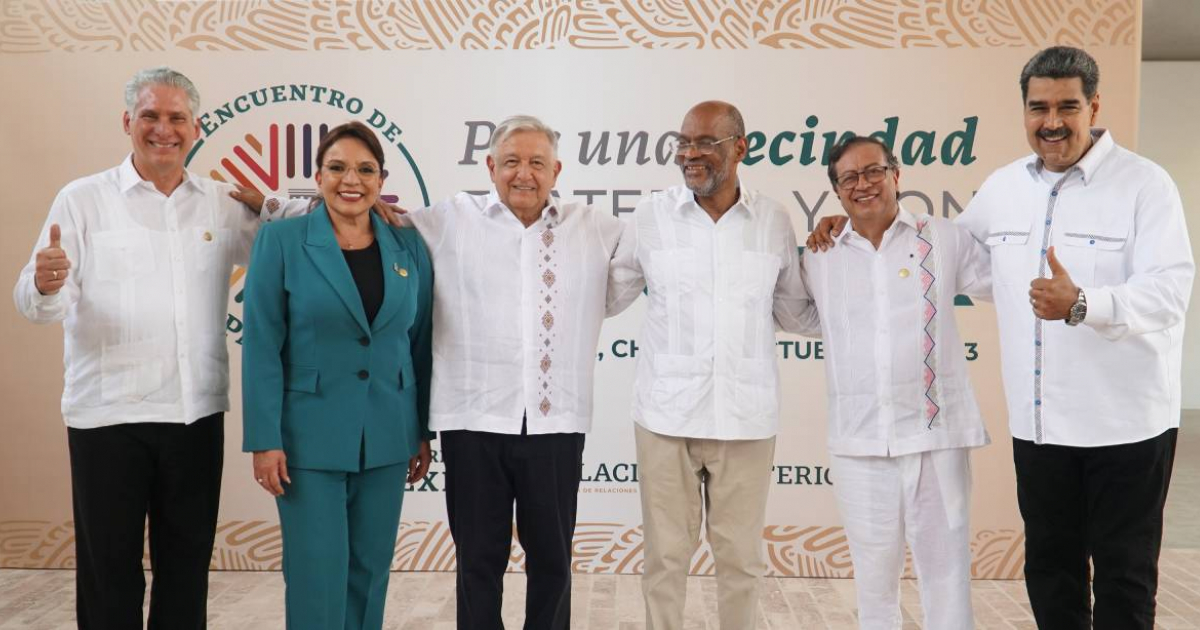
The Cuban leader Miguel Diaz-Canel participated this Sunday in the Palenque Summit, Mexico, where he blamed the US government for the migration crisis in Central America, ensuring that they stimulate the irregular migration of Cubans.
"Cuba has repeatedly warned about the responsibility of the United States government with the permanent incitement to the irregular migration of Cubans who arrive or intend to arrive at their borders, with measures of economic asphyxiation and facilities for migrants from our country," Díaz-Canel said on Twitter.
The Migration Summit in Mexico "Meeting for a Fraternal Neighborhood and in Search of Well-being" concluded this Sunday, in Palenque, state of Chiapas. The event was summoned by President Andrés Manuel López Obrador to bring a common regional position to the president of the United States, Joe Biden.
Participate 11 Latin American countries among which are Mexico, Cuba, Colombia, Haiti, Honduras, Venezuela, Belize, Costa Rica, Ecuador, Guatemala and Panama. They signed a joint declaration that has 13 agreements.
The first of them is to "develop a regional action plan" that includes food self-sufficiency, environmental protection, energy security, investment, trade and the fight against organized crime as axes.
Another agreement is to support Haiti to restore a security environment and the normalization of the country after the political crisis.
The Mexican president said that they will cooperate with their social programs “Sembrando Vida” aimed at farmers and “Young People Building the Future”, to promote youth work. He also proposed developing regional collaborative projects in gas and renewable energies.
The governments agreed to deepen “south-south cooperation” relations and promote bilateral dialogues between countries of origin, transit and destination of migrants.
They are also going to "request destination countries to expansion of regular, orderly and safe migration routes with special emphasis on labor mobility and the return of temporary workers."
They asked destination countries to "adopt migration policies and practices in line with the current reality of the region and abandon those that are inconsistent and selective, to avoid arbitrarily producing both call effects and deterrent effects, such as the regularization of certain nationalities."
The summit was another scenario used by the Díaz-Canel regime to ask the countries of the region to support the dialogue between Cuba and the United States, about the end of the economic embargo because he assures it is related to the migratory crisis.
Last week Mexico resumed migrant deportation flights to Cuba with the sending of 138 people (95 men and 43 women) from Tapachula.
In fiscal year 2023 (FY2023), according to official figures, more than 200,000 Cubans entered the United States by its land border with Mexico.
What do you think?
SEE COMMENTS (2)Filed in: